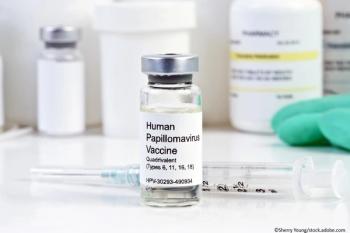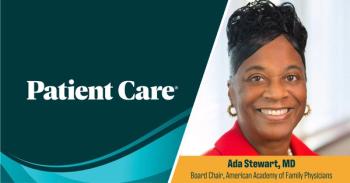
CDC Panel Urges Routine Cervical Cancer Vaccination for Girls 11 And 12
ATLANTA ? A vaccine against cervical cancer should be added to the list of recommended routine shots for girls ages 11 and 12, a federal public health panel has urged.
ATLANTA, June 29 ? A vaccine against cervical cancer should be added to the list of recommended routine shots for girls ages 11 and 12, a federal public health panel has urged.
The CDC's Advisory Committee on Immunization Practices (ACIP) agreed today that the Gardasil vaccine against human papillomavirus (HPV) - the sexually transmitted organism that causes most cervical cancers - should be part of growing up for American girls.
"This is a big breakthrough for women's health and for cancer prevention," said Anne Schuchat, M.D., director of the National Center for Immunizations and Respiratory Diseases at the CDC. She called the ACIP decision an "historic vote."
"It's a very exciting day," Dr. Schuchat told reporters after the ACIP voted unanimously to recommend:
- That the vaccine be part of routine care for girls 11 and 12
- The girls as young as nine could be vaccinated, if parents and health-care providers agree.
- That women and girls between the ages of 13 and 26 should have access to the vaccine as a "catch-up."
- And that the vaccine should be part of the federal Vaccines for Children program, which provides free vaccines for children who are uninsured, Medicaid recipients, Native Americans, or Alaska Natives.
The vaccine, manufactured by Merck, targets four strains of HPV, including two that are thought to be responsible for 70% of all cervical cancer.
A second vaccine, made by GlaxoSmithKline, is under development and will target a wider variety of HPV strains, but Dr. Schuchat said today's recommendations only apply to Gardasil, which is the only HPV vaccine licensed in the U.S.
The vaccine's initial target - the sexually transmitted HPV - raised controversy in some circles, on the basis of fears that immunizing young girls would send a dangerous message, but Dr. Schuchat said today's decision was based on two factors:
- That a large majority of young women acquire HPV infections soon after the onset of sexual activity, so that targeting girls 11 and 12 would prevent most such infections.
- Younger people have more active immune systems, so that the vaccine is likely to be most effective in girls.
The committee recommended a three-shot regimen. At for each shot, the total cost would be for each immunization.
Dr. Schuchat said the committee considered several cost-effectiveness scenarios, based on the stated prices and a range of other assumptions, but all agreed that the three-shot program would be a valuable additions to public health.
"The bottom line was that almost every way this was assessed, it was a cost-effective intervention," she said.
The ACIP, Dr. Schuchat said, looks at three factors when it makes recommendations: efficacy, safety, and cost-effectiveness. "On all three fronts, this vaccine looks very good," she said.
The recommendations now go to the CDC director and to the Department of Health and Human Services and should be approved within a few months, Dr. Schuchat said, adding the committee does not expect any alterations.
Once the recommendations are final, it will be up to physicians and health-care payers to provide the shots. Historically, pediatricians have followed CDC guidelines and health-care payers have agreed to cover costs.
Newsletter
Enhance your clinical practice with the Patient Care newsletter, offering the latest evidence-based guidelines, diagnostic insights, and treatment strategies for primary care physicians.































































































































